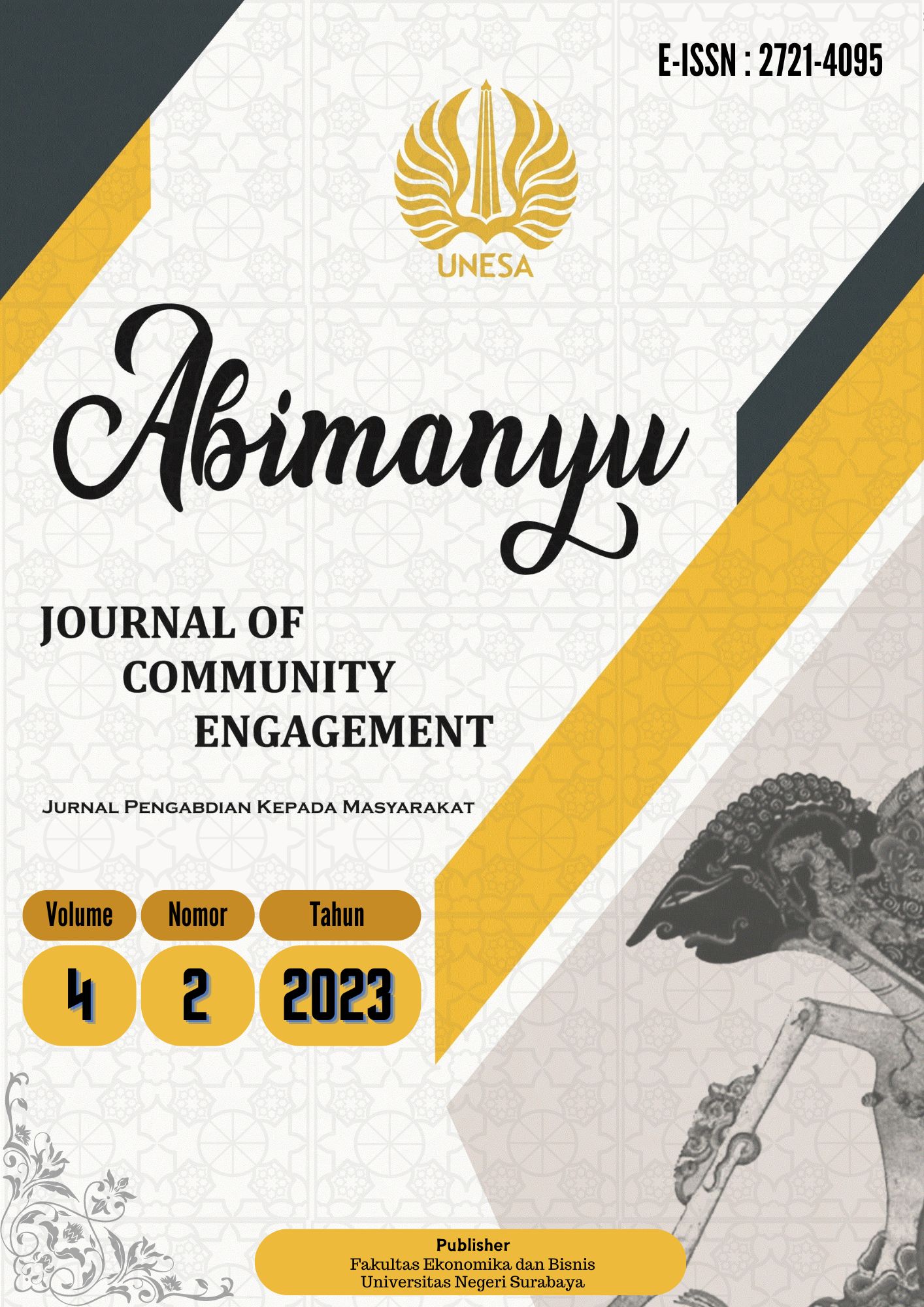Pelatihan English Verbs untuk Siswa SMK Negeri 5 Palu
DOI:
https://doi.org/10.26740/abi.v4n2.p36-45Keywords:
Training, English, Verb, StudentAbstract
This Community Service aims at training students in using English Verbs. They hopefully can increase
vocabulary especially their English verbs so that they can make sentences and communicate in that foreign
language. They are motivated to master English verbs used in their daily activities to be able to communicate in
that international language practically. Its speciic target is students having spirits to add English Verbsso that
they can use them sustainably and influence their friends in using the English vocabulary in sentences. They easily
communicate in the global language if have many its vocabularies. They also can be global learners.
Communicative method is used to reach the objective. It is applied in interaction with the students. Its result is
the Training of English Verbs for the students has been gone on well. Practical Ways of Learning English were
explained to them who were also trained to increase the vocabulary and use them in sentences so that they can
practice them even though have not veen fluent in making and expressing them. They hopefully master the English
Verbs since all English sentences must have verbs.
References
Said, M. M. (2019). Cara Praktis Belajar Bahasa Inggris. Yayasan Humaniora dan Sains.Makassar. Indonesia
Said, M. M. (2021b). English Vocabulary.CV Media Sains Indonesia. Cijerah Kota Bandung. Indonesia. www.penerbit.medsan.co.id
Said, M. M. (2023b). Dictionary of Management Terms (Kamus Istilah Manajemen). PT Pena Persada Kerta Utama. Purwokerto Selatan. Indonesia
Said, M. M., Rita, F., & Waris, A. (2019). Memotivasi Siswa SMK Muhammadiyah 1 Palu untuk Mengembangkan Keterampilan Bahasa Inggris. Palu: Fakultas Keguruan dan Ilmu Pendidikan Universitas Tadulako.
Taskiran, A., Gumusoglu, E. K., & Aydin, B. (2018). Fostering Foreign Language Learning with Twitter: Reflections from English Learners. Turkish Online Journal of Distance Education-TOJDE January 2018 ISSN 1302-6488 Volume: 19 Number: 1 Article 8.
Downloads
Published
How to Cite
Issue
Section
 Abstract views: 286
,
Abstract views: 286
, PDF Downloads: 186
PDF Downloads: 186





